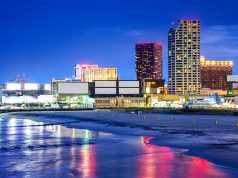
By DONALD WITTKOWSKI
City Council introduced an $87 million municipal budget Thursday night that includes a smaller tax increase than initially proposed thanks to federal stimulus funding that helps offset local revenue losses suffered during the pandemic.
The spending plan calls for a penny increase in the local property tax rate. The increase translates into an extra $50 annually in taxes for a home assessed at $500,000, Frank Donato, the city’s chief financial officer, said during remarks to Council.
When Donato and Mayor Jay Gillian unveiled the preliminary budget in March, it was first thought that the tax rate would increase by 2.2 cents. However, the city has since learned that it can inject $2.1 million in COVID relief stimulus funding into the budget to help lower the tax increase to just a penny.
Gillian told Council that the 2021 spending plan is the city’s latest example of “the most responsible budget possible.”
“This year is no different. I’m happy to report that with the COVID relief money factored in, we were able to dramatically cut the preliminary budget delivered in March. Again, I’m handing you a budget with just an increase of one penny,” Gillian said
He continued, “This budget maintains everything people come to expect from Ocean City. It continues our capital improvements, makes investments in public safety and is absolutely fair to the public.”
The city is in the planning stages to build a new public safety building on Asbury Avenue for the police and fire departments. Originally estimated at $35 million, the public safety building is more likely to cost closer to $42 million under the latest estimates, Gillian said.
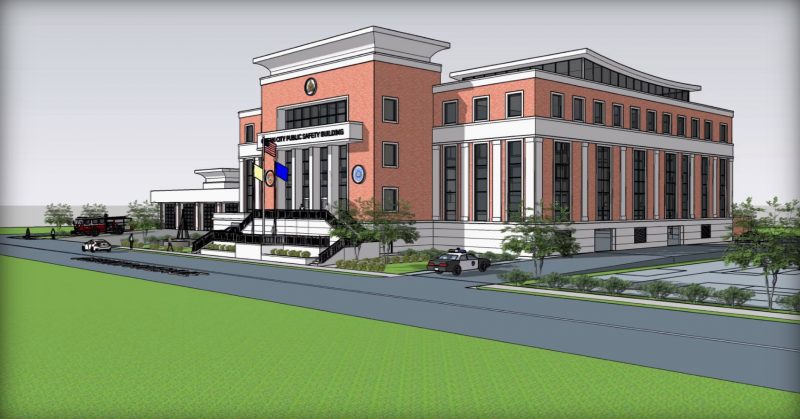
Altogether, Ocean City has been awarded about $7.2 million in federal stimulus funds. Under the guidelines established for the money, $2.1 million of those funds may be used for COVID-related revenue losses suffered by the city.
Reflecting a dramatic shift in its finances caused by the pandemic, Ocean City saw a $1.3 million revenue decline in 2020 in critical areas that are usually reliable moneymakers year after year, Donato said.
Significant drops in revenue occurred in parking fees, the municipal court system, emergency services and the Aquatic & Fitness Center, Donato pointed out. In earlier remarks, he called those revenue declines “unprecedented” in his 20 years of working for the city.
However, Donato and members of Council predicted that Ocean City is poised for a strong summer as the economy continues to recover from the pandemic and more people get their COVID-19 vaccinations.
“I think this is going to be an incredible year,” Councilwoman Karen Bergman said.
In an early sign of a potential blockbuster summer, Donato noted that preseason beach tag sales in April and May have jumped compared to the same period last year.
“All indications are that it’s going to be a great summer to come,” he said.
Donato also said he believes that parking revenue will rebound this summer over last year’s disappointing figures. The pandemic cut into the city’s day-tripper market last year, which in turn reduced the demand for parking at the municipal lots.
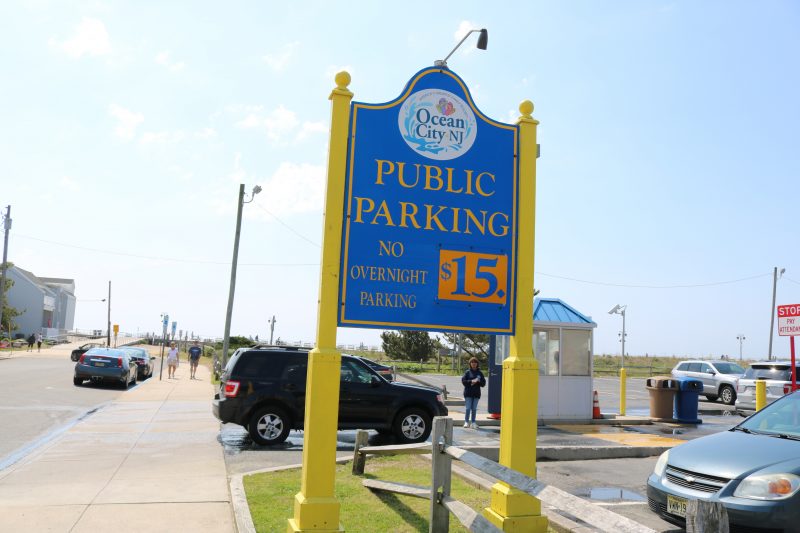
Overall, the budget is about $5.2 million higher than the $81.7 million spending plan in 2020. Donato cited higher pension costs, salaries and wages, health care, trash collection and debt service as major expenses driving up this year’s budget
In other business at Thursday’s meeting, Council gave final approval to an ordinance that will effectively make all public places in the resort town a no-smoking zone for marijuana, including the Boardwalk, beaches, playgrounds and other popular areas.
The ordinance will also ban marijuana smoking or vaping at other places that fall within the public realm, City Solicitor Dorothy McCrosson said. They will include highways, waterways, outdoor events and outdoor dining areas.
Ocean City already prohibits cigarette and cigar smoking on the Boardwalk, beaches, at city parks, playgrounds, athletic fields and other public places.
In stark language, the ordinance warns of the “inherently dangerous behavior” of smoking. It also cites the need to protect children from exposure to marijuana, cannabis or hashish.
Just last month, Council gave final approval to another ordinance that bans the sale, distribution or manufacturing of marijuana in the entire city.
On Feb. 22, Gov. Phil Murphy signed three bills to legalize pot in New Jersey for adults 21 and older and to decriminalize it for people under 21. Adults are allowed to smoke cannabis in their homes or on private property. They are not allowed to smoke marijuana in public places, according to state law.
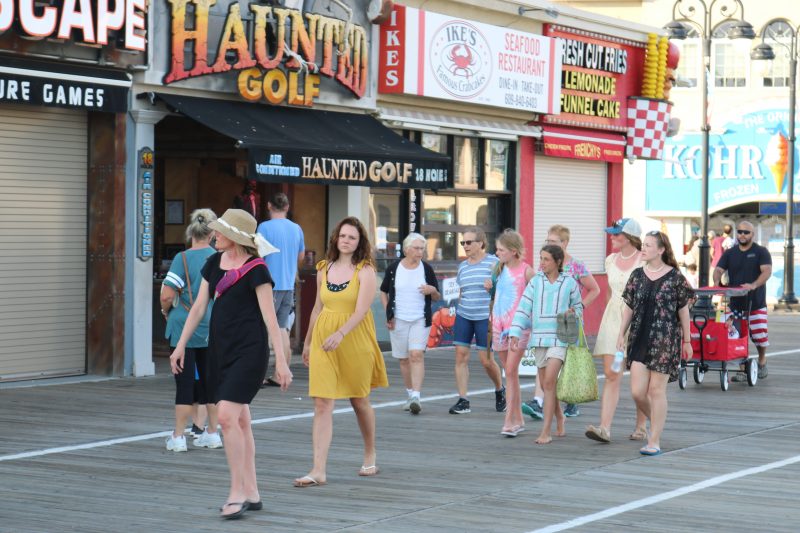
From the start, Ocean City officials have objected to New Jersey’s legalization of recreational marijuana. Council members have repeatedly expressed concerns that the city’s family-friendly reputation could be harmed if marijuana is sold in town and people simply begin smoking pot in popular tourist areas, such as the Boardwalk.
The new ordinance states that marijuana smoking will not be allowed in any public place. Penalties for violating the smoking ban will include fines ranging from $250 to $500 for the first offense and between $500 and $1,000 for a second offense.
Also at its meeting, Council approved a $3 million bond ordinance to help finance a project that will elevate a condominium complex in the south end of town above flood levels.
The Federal Emergency Management Agency has agreed to fund the entire $3 million project at the Ocean Aire condos and will reimburse the city for the cost. However, the city is approving the funding upfront to get the project started.
The Ocean Aire condo complex consists of seven buildings and 52 units on West Avenue at 43rd Street. The bayfront condos are often swamped by floodwaters that can rise as high as the windows on the first floor.
According to plans, all seven buildings will be lifted off the ground and then placed on top of massive concrete cinder blocks to raise them above flood levels. The project is expected to get underway in the fall and be completed by the summer of 2022.
City Council President Bob Barr, whose Fourth Ward Council district includes the Ocean Aire complex, said the condo owners have been waiting for a long time to escape from the flooding.
“I know you had a lot of sleepless nights that, hopefully, will soon end,” Barr told six members of the Ocean Aire condo association who attended the Council meeting at the Music Pier.
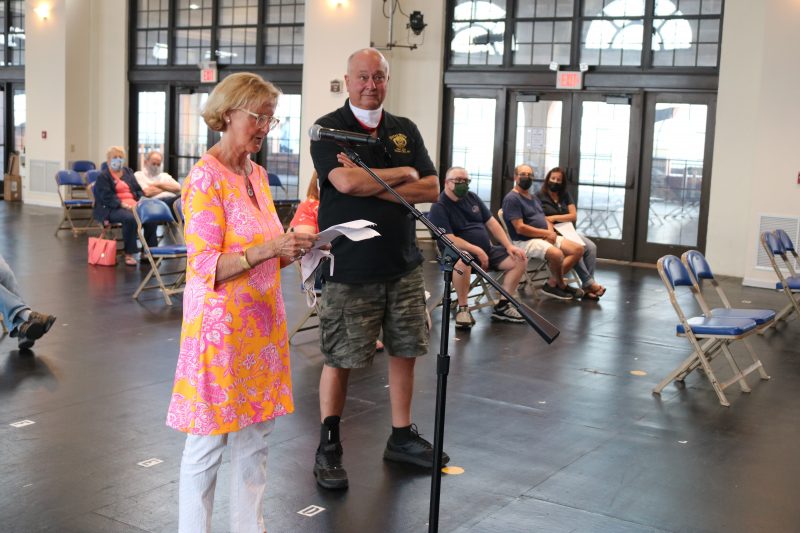
Linda Shaneor, president of the condo association, thanked city officials for their assistance is securing the FEMA funding.
“Without your help, we could not have made this project move forward,” Shaneor told Council.
Shaneor spoke of how frightening it is for the condo owners to have floodwaters lapping at the first floor windows of Ocean Aire in bad storms. Barr said he has seen photos of flooding that high at the condo complex.
Barr praised the funding agreement for the Ocean Aire project as an example of “really, really good government,” including cooperation among all levels of government as well as the city’s public-private partnership with the condo association.



